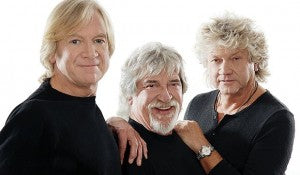John Lodge: Toasting the Moody Blues
Share
By Paul Freeman , PopCultureClassics
The Moody Blues are on tour again. And for John Lodge, founding member, bassist, singer and songwriter with the legendary British band, the Bay Area was the most anticipated destination.
In Sausalito, the connoisseur unveiled his own wine in Sausalito prior to a Marin concert. A blend of cabernet, merlot and shiraz, it’s called Krisemma, after Lodge’s son Kristian and daughter Emily. Fine wine gets better with age... and so do The Moody Blues.
The band’s timeless appeal was proven once again when their classic song “Nights in White Satin” soared up the U.K. charts again recently, reaching number two. It had been showcased on Simon Cowell’s hit British TV show “The X Factor.”
The Moody Blues first huge chart success was 1965’s bluesy “Go Now.” They didn’t lock themselves into a formula, instead, veering off in a different direction, writing complex, classically influenced rock pieces, such as “Tuesday Afternoon” and “Question.” Lodge penned such enduring songs as “Ride My See Saw,” ”Eyes of a Child,” “Send Me No Wine,” “Candle of Life,” “Minstrel’s Song,” “Emily’s Song,” “Isn’t Life Strange” and “I’m Just A Singer (In A Rock and Roll Band).”
Album after album saw them expanding their musical vision. Among the magnificent creations are “Days of Future Passed,” “In Search of the Lost Chord,” “On The Threshold of a Dream, To Our Children’s Children’s Children,” “A Question of Balance,” Every Good Boy Deserves Favour, “Seventh Sojourn,” “Octave,” “Long Distance Voyager” and “Strange Times.” The band has amassed 14 platinum and gold discs.
Lodge teamed with fellow Moody Justin Hayward for the 1975 album “Blue Jays” and released an excellent solo album, “Natural Avenue,” in 1977. In that decade, Lodge produced the band Trapeze.
Moody Blues Fans remain firmly faithful. In July, Universal Music Enterprises will release a greatest hits CD, “Icon.”
Married to wife Kirsten since 1968, Lodge has been able to find a beautiful balance in life. And he still relishes stepping on stage to thrill packed venues with memorable Moody Blues songs. The band’s musical integrity and innovative style has earned them remarkable longevity.
It was a pleasure to chat with Lodge for Pop Culture Classics.
POP CULTURE CLASSICS:
It must have been a great feeling to have “Nights In White Satin” become a huge hit on the U.K. charts again.
JOHN LODGE:
Yes, number two in the charts. All from ‘X Factor.’ One of the most gratifying things about it being number two was that someone else from the television show performed it and you’d have expected that one to go flying up the charts. But everybody downloaded our version, which was a really, really nice thing for us, to be honest, because it’s out of the blue.
PCC:
But the band’s albums are so rich and textured, does it concern you that young people tend to pluck individual songs from iTunes, rather than complete albums?
LODGE:
That is a problem. But if a young person just hears one snippet of a Moody Blues song and they like it, maybe they’ll come to the concert and maybe they’ll see two hours of Moody Blues and then maybe they’ll go, ‘You know, I think I really should have bought the long-form version. That’s what we hope, of course. But it’s very difficult in some ways. If you were just coming to The Moody Blues now and said ‘Which album should I buy, that says who The Moody Blues are?,’ I wouldn’t know. I wouldn’t know at all. I could say, ‘Start with the first one and work your way through.’ That’s probably the only way to do it. But I wouldn’t know what album sort of says who The Moody Blues are.
PCC:
Are there particular elements that make The Moody Blues’ music instantly recognizable?
LODGE:
Yeah, there are. And those elements are on all the albums, from day one. And the other interesting thing is, we’ve written the songs ourselves, the songs are really about us at a particular time in our lives and about experiences that we were having or we had had. And you suddenly realize, that transcends generations. When I was writing a song like, say, ‘Peak Hour,’ which I wrote probably when I was 22, it still seems to appeal on stage today. And the same words in that song are still relevant to what’s happening to everyone today. If you can transcend everything, transcend the leaps from one generation to the next, then you can still appeal.
PCC:
You were just 14, when you began playing in bands.?
LODGE:
Yes, at 14. And Ray Thomas, who was the flute player in The Moody Blues until just a few years ago, he was 16. And we met and formed a band. And we were together for four years before The Moody Blues. Interesting times.
PCC:
How did the fantasy of life as a rock musician compare to the reality?
LODGE:
I don’t know whether there was a fantasy. Until I was probably 13, although music was all around me - radio, at school, everywhere else - I never saw myself playing an instrument. But then this thing called rock ‘n’ roll turned up from America. It wasn’t just about the music. It was rock ‘n’ roll. It was something about young people. It was something new. It was about the bold adventure through the fifties. I wanted to be part of it. It wasn’t just the music. It was everything - the cars. American cars were just supreme. And ‘Rocket Man.’ All those things were just supreme. When I suddenly realized I did have ability to learn how to play a guitar and use it on stage, it just became an extension of me. I don’t think there’s any fantasies. It was just a case of, ‘It would be fantastic if we could go and play at the youth club next week.’ And that’s what we did. We played the youth club. And then eventually, we’d say, ‘It would be fantastic if we could go play at a proper club, where people pay to go and watch.’ And then, suddenly, you’re doing that. So, I suppose, you live the fantasy, as you go along. You don’t actually know that the fantasy is.
PCC:
It must have been a pioneering phase for electric bass in rock.
LODGE:
It was. I came from Birmingham, in England, and you could not buy an electric bass guitar. I actually didn’t even know what an electric bass guitar was. I was playing a regular electric guitar, but I was playing the bottom strings, because that’s the area of sound that I was really interested in. I was also interested in the driving force of what those bottom strings do. And there were people like Duane Eddy playing on the bottom strings of his guitar. And it just enthralled me. And then I went to see an American band, which you’ve probably never heard of, not many people have, but they are well worth looking up, a band called The Treniers. And I went to see them live in Birmingham, at a concert, and I’m looking, and there are like three guitarists. And I thought, ‘Just a moment, that guitar in the back doesn’t look like the other ones.’ It had only four strings. And I went, ‘Ah, that’s what the electric bass looks like.’ It was a Fender Telecaster bass. And that was it then. I just had to try and find this bass. And then one appeared in Birmingham, a Fender Precision bass, in 1959 this was. And I remember rushing home to my Dad and saying, ‘Dad, can you help me? I can’t afford to buy this. I have no money. I’m in school. Can you help me?’ And we bought this Precision bass and then I learned how to play it and had to build amplifiers to get the sound to come out of it. You needed some good speakers and a powerful amp. And then I recorded the first 10 albums with that bass, can you believe?
PCC:
At the beginning, in the Denny Laine days, it was more of a blues-oriented band?
LODGE:
Yeah, The Moody Blues, in the beginning, with Denny. ‘Go Now’ was a fabulous song. But it was written by Bessie Banks. It wasn’t written by The Moody Blues. And the band was based on a blues band. Strangely enough, none of us had ever been to America. And it was strange to be sort of copying American music, when you’ve never actually been. I think that’s why we decided to start writing all our own music and then we came up with ‘Days of Future Passed,’ because we wanted to be the blues, but English style. We wanted to sing about the blues in our lives, being from England. And that’s what we did.
PCC:
And the complexities of the music, the classical influences, where did all of that come from?
LODGE:
Well, that came about, because we are all different people within the band. And for me, personally, I went to what’s called a grammar school in England. And before that, I was at a very small school and every afternoon, there would be a quiet period and they would play classical music on a record. And the reason for this, I think, was that Birmingham had, still has, one of the great orchestras in the world, the city of Birmingham Symphony Orchestra. So I have this influence of classical music, which I never thought was going into my psyche, to be honest. I thought I was just falling asleep. And then, Birmingham is a motor town, so you have all these heavy steel industries. So you’ve got the yin and yang, really. You’ve got the orchestra and then the heavy metal. That’s why you’ve got bands like Ozzy Osbourne out of Birmingham. You’ve got all the heavy metal bands that came out of Birmingham, as well. And then you’ve got the orchestral-leaning bands like Moody Blues and Electric Light Orchestra. That’s my theory, anyway.
PCC:
It must have been an exciting time for music generally, with all the stylistic experimentation going on.
LODGE:
It was absolutely a brilliant time. I don’t know exactly how many bands there were in Birmingham at the time. But there must have been at least a thousand bands in Birmingham, playing. And there were so many venues. When I was 15, 16, 17, I was playing probably five concerts a week in Birmingham, around the area. It was just a fabulous time. But you’d just meet up with all these other artists, they’re all friends, and talk about music. It was wonderful. Everyone would meet on a Saturday afternoon at two music shops in Birmingham and while you were in there, you’d be saying where you’d be working that night. Even if you weren’t working, you’d tell somebody you were.
PCC:
There were so many different directions in music happening at that time.
LODGE:
So many different directions. Because you’d go to see one band and say, ‘Yeah, I really like this band, but we’ve got to do something different. We don’t want to go that way.’
Continue Reading...


